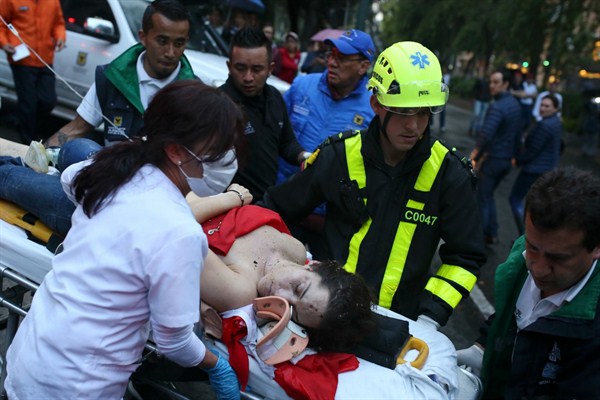On Saturday, June 17, the upscale Centro Andino shopping center in the Colombian capital, Bogota, was teeming with families, mostly women and children shopping the day before Father’s Day. At about 4 p.m., a powerful bomb went off in the women’s bathroom. The explosion killed three people, including a French woman, and injured 11 others. It also laid bare the obstacles along Colombia’s path to a sustainable peace.
The immediate question, and one that authorities have not been able to answer, is who built and planted the bomb. But as investigators run down the clues and explore various theories, the attack makes clear that Colombia’s widely-praised march toward peace is still very much a fragile work in progress.
Perhaps the most startling thing revealed by the investigation and discussions about the attack is the number of organizations and groups that come to mind as possible perpetrators. Every one of them could conceivably have carried out what looked very much like a terrorist operation targeting civilians.

